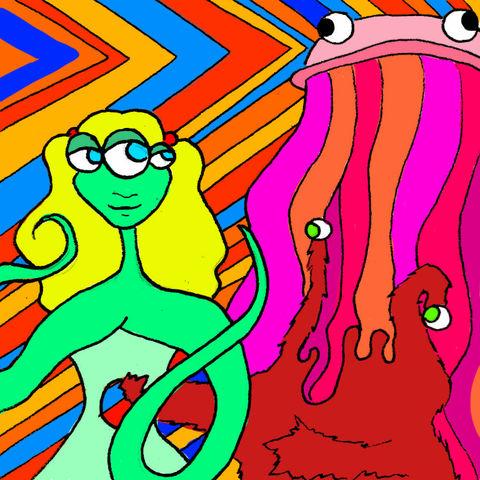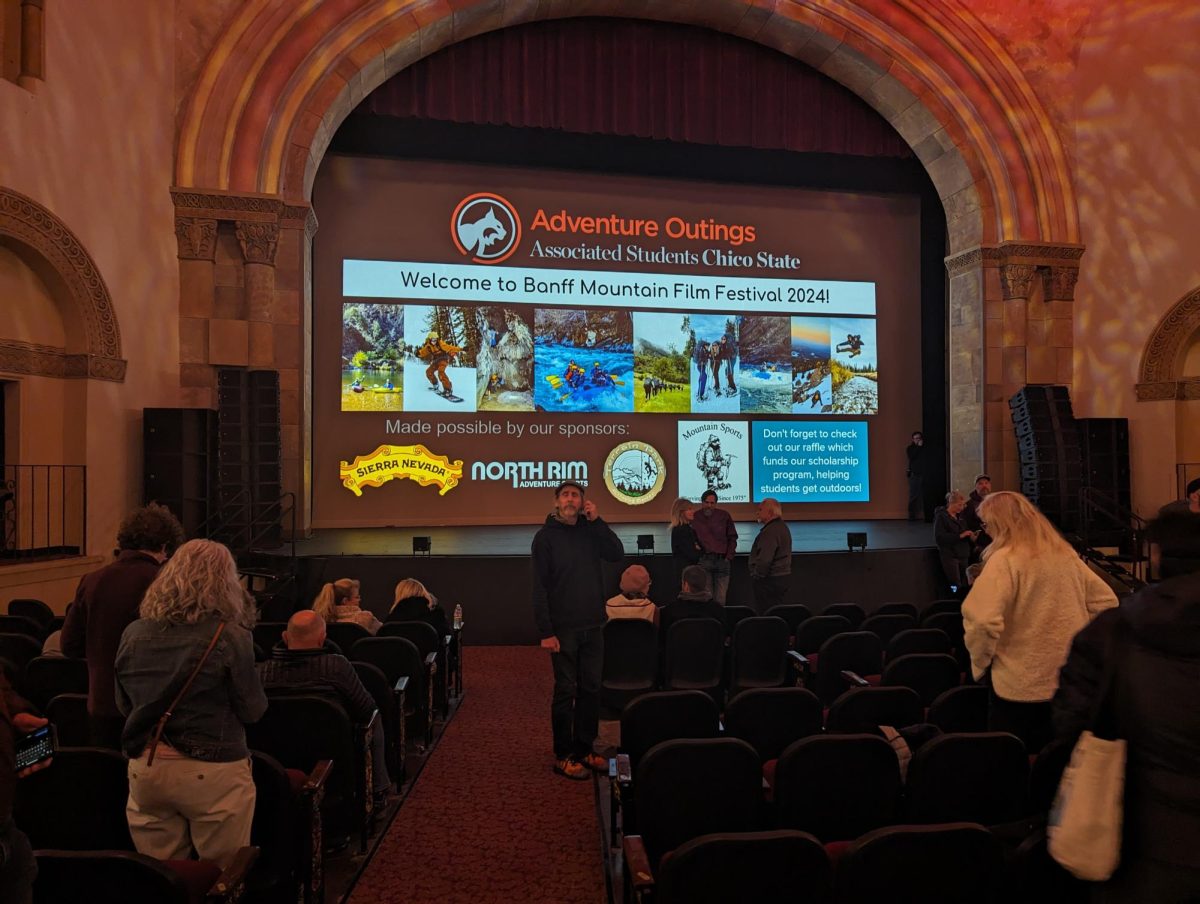Babysitting people on psychedelics, or trip sitting, is never boring. When it’s kicked in it can be a bit like watching kids play in the toy structure at McDonald’s. All you have to do is keep morale up. Despite psychedelics being such a safe and simple pastime, there’s a single reason why I’ve never indulged.
Now, I’ve argued (but really it’s more like explained) before that everybody should be allowed to try whatever drug they wish, and no one should have to worry about employment when writing about their intoxicated experiences. Just because some of us don’t do x, doesn’t mean we must ban x for everybody else.
I am of the mind that no drug is bad for you. In fact, nothing is bad for you – the badness or goodness of a substance is entirely dependent on moderation. I think this is a pretty agreeable idea, even if less people would agree when it comes to cigarettes, crystal meth or heroin (all of which get inordinately bad reps).
If you think that these drugs actually are bad for you, well… When it comes to drugs we are able to make a divide between narcotics and hallucinogens, in which one side is clearly less “bad” for you, in terms of short-term and long-term health risks, addiction, antisocialness, probability of doing something stupid while intoxicated, etc.
This sort of distinction makes it miraculous that many psychedelics are prohibited in the states, likely the result of mysterious, paternalistic politics similar to what we know made weed criminalized (hint: racism and bureaucracy).
Psilocybin-containing mushrooms, lysergic acid diethylamine (LSD) and peyote are all Schedule I drugs, indicating that their medical use is negligible and potential for abuse extraordinary. So their Scheduling is laughably bad; fortunately, a healthy dose of distrust for the Fed lets people see past these arbitrary restrictions.
Although psychedelics are supremely low on the “adverse effects” totem pole – bad trips aside – there’s a single concern left over. What do mind-altering drugs do for our perception?
Thinking about perception is difficult because it seems unknowable. Someone can take a psychedelic drug and feel awakened to some formerly unachievable understanding and be convinced that prior to consumption they were less enlightened – but whether that actually accounts for anything I’m unsure.
I’m not talking about perception as in the observational skills of a good detective, or even the abilities of the eyeball in deciphering colors or shapes. I mean perception as in thoughtfulness: clarity in thinking about reality, distinguishing realism from idealism. Philosophy.
Although hallucinogens have spawned waves of brilliant thinkers and writers (Philip K. Dick, for example, or Timothy Leary), it seems hard to reconcile the psychonautical explorations of hallucinogens and the grounded ruminations of meaningful philosophy.
My goal remains to prioritize perception – not that it’s kept me from experimentation with other drugs of less notorious life-alteration.
The fear is simple: is getting phat zooted one time worth losing sight of truth? Psychedelics have a tendency to completely alter a user’s take on things, but whether this shift (almost always received positively by the user) is closer to truth or further from truth seems to be anyone’s guess.
A lot of people don’t feel any different after returning to sobriety. Knowing my own experience with other drugs, my exorbitant sensitivity makes this full return impossible.
Something in my neurology over the past few years has made me increasingly susceptible to the effects of every drug except alcohol, for which at least I still have the toughest liver in the West. I would probably make an excellent heroin addict because I’d need so little (not to mention my veins are like the Alaskan pipeline. I hope this vivid metaphor haunts my future relationships).
In any case though, there doesn’t seem to be an empirical way to determine whether the mental perspective after taking mind-altering substances is, in a sense, heightened or blunted (no pun intended) as compared to the mind prior to consumption.
Probably the deepest horror would be trying a psychedelic and then unknowingly substituting philosophy for “stoner philosophy,” which would be like swapping Sierra Nevada for Keystone Light, or Superman for Marvelman, or doggy style for missionary, or… you get the point.
So there may be only one reason to not try hallucinogens. But at the end of the day, if you don’t give a shit about having an accurate perception of things, it doesn’t matter. Try all the drugs, and by anyone’s guess, you can have the best perception of them all.
William Rein can be reached at [email protected] or @toeshd on Twitter.















jth4 // Mar 24, 2016 at 4:23 pm
Nice article. I would point out Jim Fadiman’s high level problem solving experiments in which engineers and other professionals would take LSD and work on highly technical problems. This resulted in accepted works and published inventions. Additionally, I would point out the Noble prize winners whose visions of their work were enhanced by LSD. This would be as close to empirical evidence of heightened perspective that I can think of currently.
If you take into account Grof’s work with severely troubled patients and their ability to integrate and work through their issues with substance-assisted therapy, this could be seen as heightened perspective (the ability to recall in vivid detail troubling past experiences and make connections to the systemic impact of those events).
Also, it’s unknown under what conditions apparently sober philosophy was crafted. Psychedelics have been here as long as we have and their prohibition is a fairly new development. To call textbook philosophy “Truth” and philosophy after a psychedelic experience “stoner philosophy” misses the mark by a long shot. It’s the culmination of all experiences that lead to any individual’s perspective on life, and it shouldn’t be categorically dismissed based on their substance use. To me, that reads as bigoted as dismissing a person’s philosophy based on their culture or geographic upbringing.
I know you’re writing in a tongue-in-cheek manner, but the case can certainly be made that structured psychedelic sessions lean towards heightened awareness of practical value.
Jace B. // Apr 11, 2016 at 11:59 am
I was going to say precisely the same thing in one form or another. This was a fantastic response. While I enjoyed the article, I did feel it was a bit along the lines of making a hypothesis without integrating all aspects of known research and data. As you said, some of the greatest minds in the world have had their work enhanced by the perspective achieved through psychedelic substances; Steve Jobs and the development of Macintosh is another good example. It expedites the process of letting go of previous entanglements and baggage, leaving you more present in your daily life. That is arguably healthy for anyone’s mental state seeing as the past no longer exists, so there is no benefit from lingering on it. Not only that, but the creative process becomes greatly uninhibited through these medicines as well. If you are a writer or artist in any form, these can open up several new pathways in which your art can grow. Just some added perspective to consider.